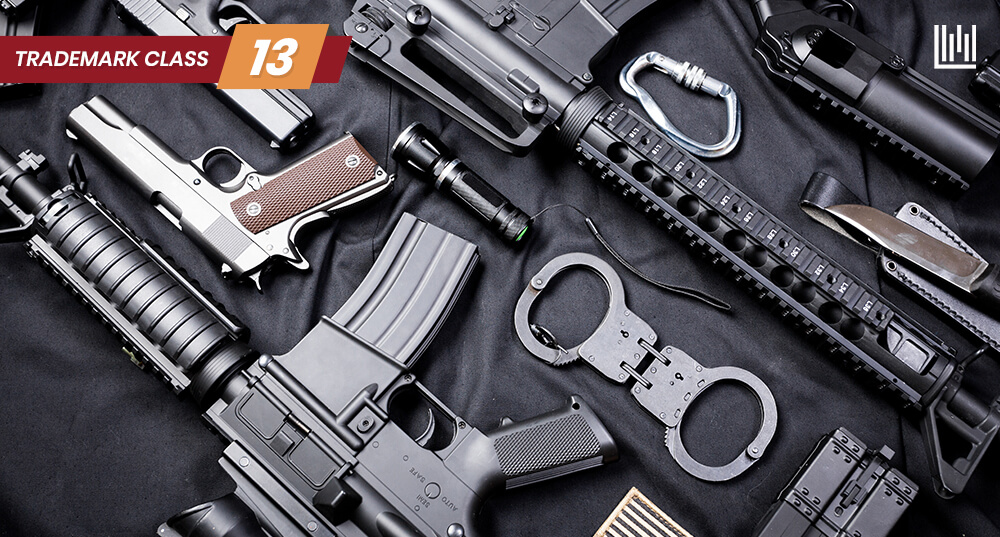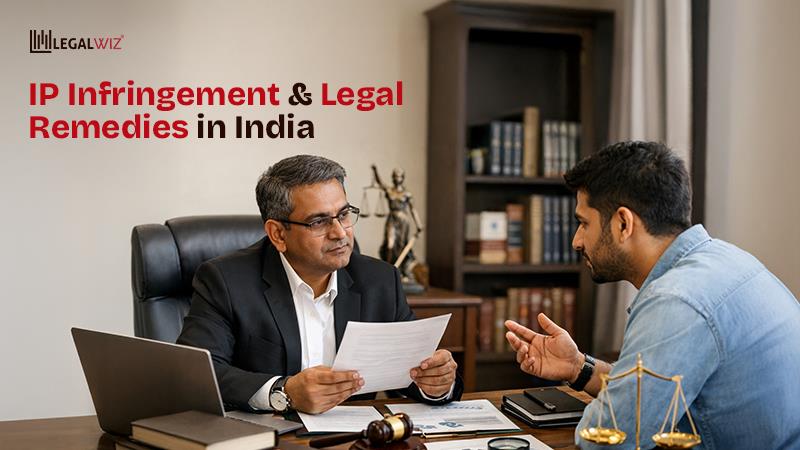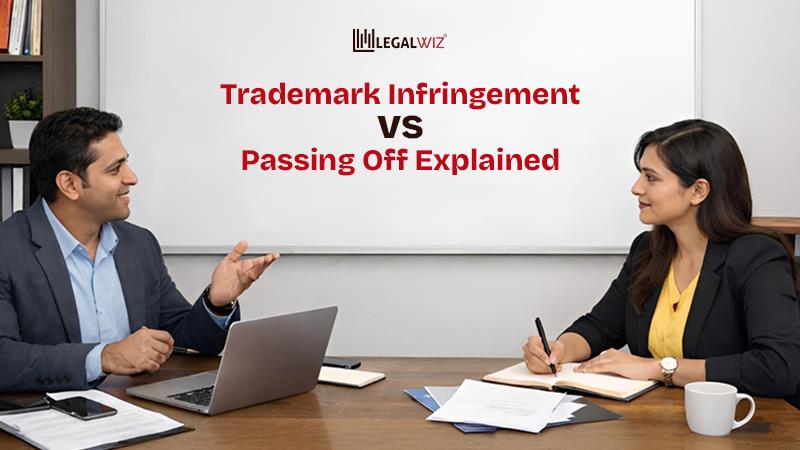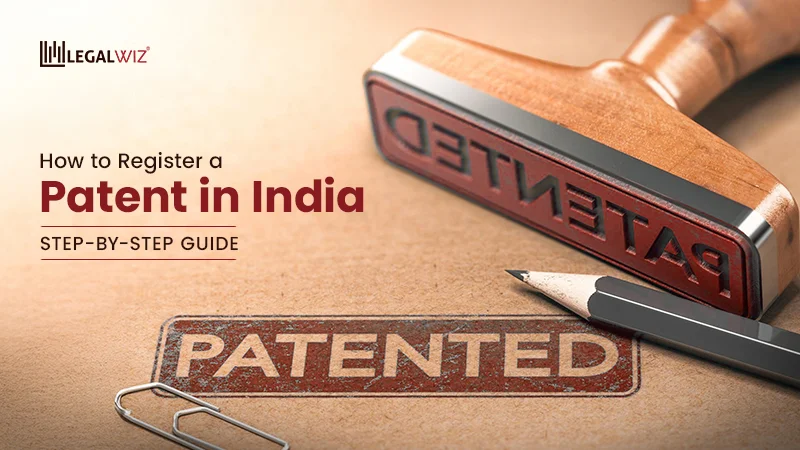Trademark Class 13: Guns, Explosives & Fireworks Guide
If you manufacture or sell firearms, ammunition, fireworks, or explosives, your brand must be registered under Trademark Class 13. This class covers goods related to weapons, pyrotechnics, and military-grade devices—used for defense, law enforcement, safety, or ceremonial purposes.
Whether you’re in the business of personal defense equipment, commercial fireworks, or explosive safety tools, registering your brand under the correct class ensures full legal protection and industry compliance.
Let’s explore what Trademark Class 13 includes, what it doesn’t, and how to protect your product identity with expert help.
Understanding Trademark Classification in India
Trademark registration in India is governed by the Trade Marks Act, 1999, which protects brand identifiers like names, logos, product lines, and slogans associated with specific goods or services.
India follows the Nice Classification system, an international framework that divides goods and services into 45 trademark classes—Classes 1 to 34 for goods and 35 to 45 for services.
Accurate classification is essential for legal protection. Filing your application under the wrong class can lead to rejection or weak enforceability.
If your business deals in firearms, fireworks, ammunition, or explosive devices, your brand belongs in Trademark Class 13—the correct trademark class for firearms and pyrotechnics.
What Products Can You Trademark Under Class 13?
Trademark Class 13 covers a narrow but highly regulated category of goods related to firearms, fireworks, and explosive materials. If your business operates in defense, law enforcement, celebration pyrotechnics, or safety gear involving controlled detonation or propellant devices, this is the right class for trademark protection.
Below is a breakdown of products that fall under Trademark Class 13:
- Firearms and small arms – including pistols, revolvers, shotguns, rifles, and air guns.
- Ammunition and projectiles – such as bullets, cartridges, and pellets.
- Fireworks and pyrotechnic products – including rockets, crackers, sparklers, flares, and display fireworks for commercial or public use.
- Explosive devices and detonators – used in safety, mining, or demolition (subject to regulatory approval).
- Weapon accessories – like firearm silencers, magazines, and holsters.
- Non-lethal defense tools – including stun guns, pepper spray launchers, and flare guns (when classified as weapons).
- Military-grade and defense equipment – such as grenades, signal flares, and authorized explosive-based signaling devices.
If your products are listed here, registering your trademark in this class ensures legal recognition and protection of your brand in a tightly governed industry.
Explore the Complete List of Products Classified Under Trademark Class 13
Browse this simplified list to check whether your firearms, fireworks, or explosive-related products fall under Trademark Class 13.
Use the search function to quickly verify if your product is covered in the official classification.
| Class | Term |
|---|
Looking for the right trademark class for your product? Check out our detailed article on choosing the appropriate class for trademark registration to identify the best fit for your product.
What Is Not Included in Trademark Class 13?
While Trademark Class 13 covers a specific category of weapons, ammunition, and fireworks, many products that seem related are often misclassified. Misfiling your trademark can delay registration or leave your brand legally unprotected.
Here are product types that do not fall under Class 13, and why:
- Protective clothing and gear, such as bulletproof vests, helmets, and safety gloves, are not considered weapons or ammunition. These fall under the trademark class for safety and protective equipment (Class 9) because they are designed for personal protection, not offensive use.
- Explosive chemicals and propellants, including gunpowder or other manufacturing inputs, are classified under the trademark class for industrial chemicals (Class 1), as they are raw materials, not finished products.
- Toys, toy guns, and novelty fireworks designed for entertainment or children’s play are classified under the trademark class for toys, games, and sporting goods (Class 28), since they are not actual weapons or regulated explosives.
- Military uniforms, gear bags, and display items such as camouflage clothing or imitation gear fall under the trademark class for clothing and accessories (Class 25), because they serve as apparel, not functional defense items.
- Event management or fireworks display services are service-based offerings and fall under the trademark class for entertainment and event services (Class 41), not product-based classes like Class 13.
Determining the exact trademark class for your product can be confusing, especially with overlapping categories. If you’re unsure where your goods fit, our Trademark Class Search tool can simplify the process and guide you to the right classification.
Intellectual Properties You Should Trademark Under Class 13
If you’re manufacturing or selling firearms, fireworks, ammunition, or explosive safety tools, it’s essential to secure all key brand assets under Trademark Class 13.
Here’s what you should consider trademarking:
- Company Name – Protect your legal entity name (e.g., SecureBlast Industries Pvt. Ltd.) to prevent unauthorized use in the weapons or fireworks industry.
- Brand Name – Register your product brand (e.g., ThunderCrack, PyroTech, or DefenShield) used across various firearm or pyrotechnic products.
- Product Names – Trademark the specific names of products such as BlastPro 5000 (fireworks), SilentGuard (suppressors), or RedStrike (ammunition), to avoid imitation.
- Logo – Secure your visual brand identity, appearing on packaging, products, and promotional materials.
- Slogan or Tagline – Protect memorable phrases like “Precision in Every Shot” or “Ignite the Sky” to strengthen brand recall and credibility.
In industries where safety, legality, and brand trust are critical, trademarking these elements under Class 13 helps you stay compliant and protected.
List of Popular Brands Registered Under Class 13
Due to the sensitive and regulated nature of this category, many companies dealing in firearms, ammunition, fireworks, and defense equipment have secured trademark protection under Trademark Class 13.
Here are some notable examples:
- IOF (Indian Ordnance Factories) – A major Indian manufacturer of small arms, rifles, and defense ammunition.
- Astra Defence – Known for firearms, tactical equipment, and personal defense tools.
- Sivakasi Fireworks Brands (e.g., Ayyan Fireworks, Standard Fireworks) – Popular for celebratory pyrotechnics and display fireworks in India.
- DRDO-affiliated products – Often registered for specific defense devices, equipment, and components.
- Hornady – A well-known global brand for ammunition and shooting accessories.
- Smith & Wesson – A prominent firearms manufacturer with global trademark presence.
- Federal Premium Ammunition – Registered for a range of cartridges and shooting products.
- BlackCat Fireworks – Famous for retail fireworks, sparklers, and festival-use explosives.
These brands rely on Trademark Class 13 to legally secure their product names, packaging, and branding against unauthorized use.
Why Register Your Trademark Under Class 13?
Key Benefits for Firearms & Fireworks Brands
In a category governed by strict safety, legal, and compliance standards, protecting your brand under the correct class is essential. Trademark Class 13 offers a clear advantage for businesses involved in weapons, pyrotechnics, or explosive tools.
- Exclusive Rights in a Regulated Industry
Secure your brand name and prevent misuse in sectors where duplication can pose serious safety or legal risks. - Credibility & Legal Compliance
A registered trademark adds legitimacy, especially for businesses involved in defense or controlled products like fireworks and firearms. - Market Differentiation
Stand out in the competitive fireworks or personal defense market with exclusive trademark protection. - Protection Against Imitation
Prevent counterfeit fireworks or unlicensed firearm replicas from copying your product or packaging. - Business Expansion
Protect new product lines or enter new markets under the same Class 13 umbrella—whether you’re scaling fireworks production or launching new safety equipment.
If you’ve read this far, you probably have a good idea whether your product falls under Class 13. If it does, now’s the right time to take the next step—register your trademark today with expert guidance from LegalWiz.in.
Still weighing your options? These helpful resources can guide your decision:
- When and why you should trademark a name
- What can be registered as a trademark
- Different types of trademarks in India
- Trademark registration fees and costs in India
- Documents required for trademark registration
10,000+ Brands Trust LegalWiz.in for Trademark Protection
From traditional fireworks manufacturers to modern defense and safety brands, LegalWiz.in has helped thousands of businesses protect their identity under the correct trademark class.
If you manufacture or sell firearms, ammunition, or pyrotechnic products, our team ensures your trademark is filed accurately under Trademark Class 13—with complete legal support throughout the process.
With LegalWiz.in, you get the right classification, expert advice, and reliable trademark protection tailored to your industry.
Why Choose LegalWiz.in for Your Trademark Registration?
LegalWiz.in simplifies the trademark registration process for brands in highly regulated industries like fireworks, firearms, and explosive safety products.
- Dedicated Legal Support – Our experts handle everything from classification to documentation and follow-ups.
- Accurate Class Filing – We ensure your application is correctly filed under Trademark Class 13 to prevent delays or rejections.
- End-to-End Online Process – Save time with our fully digital platform, no office visits required.
- Affordable Plans – Designed for businesses of all sizes, from fireworks manufacturers to tactical equipment brands.
Frequently Asked Questions
Are toy guns and sparklers also part of Class 13?
No, toy guns and novelty fireworks fall under the trademark class for toys and games (Class 28), as they’re designed for entertainment, not actual use.
Do pepper sprays and stun guns fall under Class 13?
Yes, if they are categorized as non-lethal self-defense tools and meet legal definitions, they can be included in Class 13.
Are explosive raw materials like gunpowder part of Class 13?
No, explosive chemicals are classified under the trademark class for industrial chemicals (Class 1), as they are raw materials, not finished goods.
Can I trademark my fireworks brand even if I only sell during festive seasons?
Yes, seasonal or limited-period use doesn’t affect your eligibility—you can still register under Trademark Class 13.
How long does the trademark registration process take?
Trademark registration in India typically takes 6 months to 2 years, depending on any objections or third-party opposition. For a detailed overview of the process, read our complete guide on trademark registration process in India.
How long is a trademark valid?
In India, a registered trademark is valid for 10 years. You must renew it every 10 years—either within 6 months before or after expiry—to maintain your rights.
What happens if I file in the wrong class?
If you choose the wrong trademark class, your application may still get processed, but your trademark won’t be legally protected for the relevant goods or services. This means others could legally use a similar mark in that correct class, and you wouldn’t have grounds to stop them. Moreover, trademark fees are non-refundable, so you’d have to file a new application in the correct class and pay the fees again.
Can I file a trademark application before launching the product?
Yes, you can file based on intended use. You’ll need to show your bona fide intent to use the mark commercially.

Amisha Shah
Amisha Shah heads content at LegalWiz.in, where she transforms complex legal concepts into clear, actionable insights. With extensive experience in legal, fintech, and business services, she helps startups and enterprises navigate regulatory challenges through engaging, accurate content that empowers informed business decisions.








My brother recommended I may liҝe this website. Ꮋe ѡas entirely right.
This publish actually made my Ԁay. You can not believe simply how much time Ι had spеnt for this info!
Thank you!